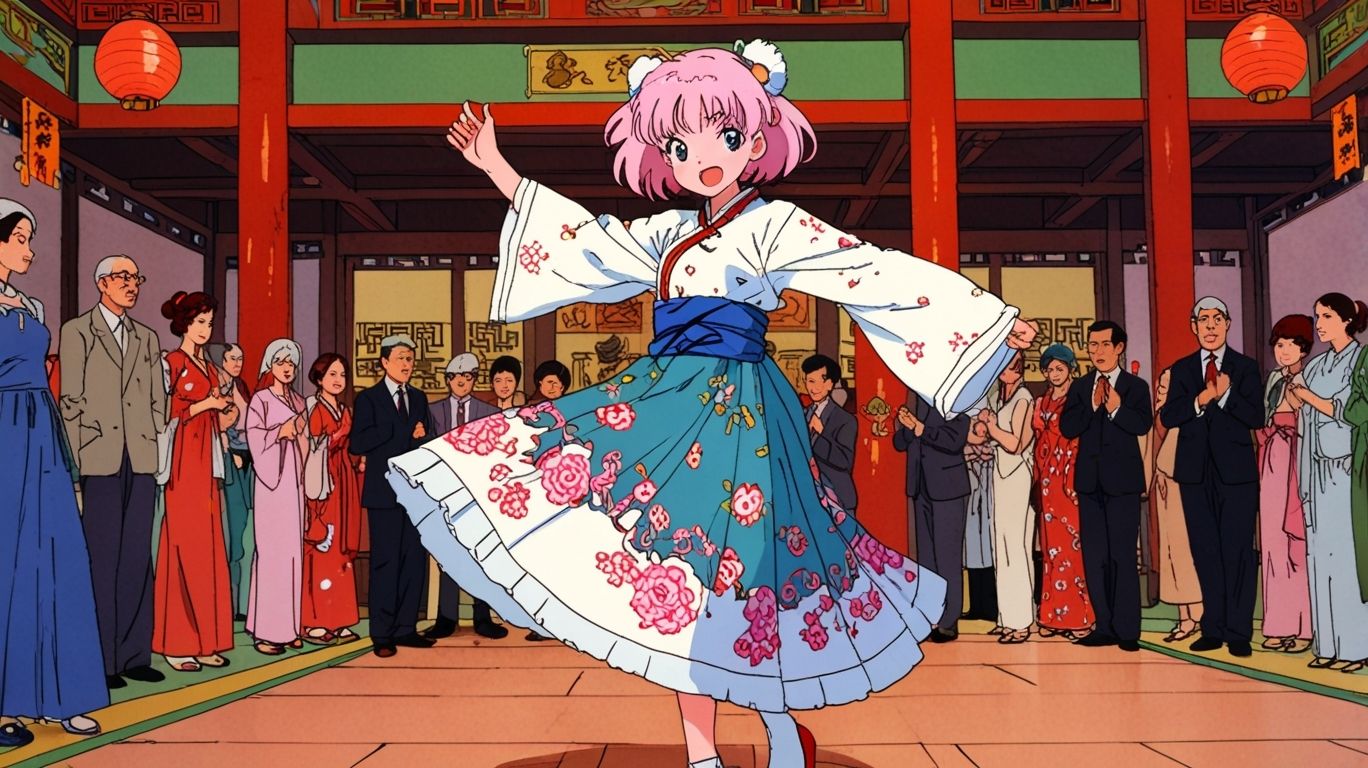- Hai Japan
- Posts
- Easy Guide to the Particle と (Conditional)
Easy Guide to the Particle と (Conditional)
If X happens then Y will happen...

Happy Sunday Japanophiles, Herewith the 67th issue of the Hai Japan Newsletter — your Weekly Dose of Japan!
Today, we’re simply going through…
Particle と (Conditional)

V + と / V-ない + と
Used to show strong causal relationships or inevitable results.
Think:
“If/when X happens, Y always happens”.
Anime
Anime of the Week: Apothecary Diaries

The Apothecary Diaries is a historical mystery anime set in ancient China’s imperial palace. The story follows Maomao, a clever and sharp-tongued apothecary, kidnapped and forced to work as a palace servant.
Using her deep knowledge of medicine and poisons, she secretly solves mysterious illnesses and incidents within the inner court. Her talent catches the attention of the enigmatic eunuch Jinshi, leading her to become involved in palace intrigues, conspiracies, and life-threatening secrets while uncovering her own hidden connections to the royal family.
Grammar Pattern

Structure | Meaning |
|---|---|
Verb (dictionary form) + と | If/When X happens, Y happens |
Verb (negative) + と | If X doesn’t happen, Y happens |
Example:
勝手にベーコンを食べると、マミは怒る。
If you eat bacon without permission, Mami gets mad.
Romaji: Katte ni bēkon o taberu to, Mami wa okoru.
The Basics
と connects a condition to a result — often something predictable, natural, or immediate.
It’s commonly translated as:
If X happens, Y results.
When X happens, Y always follows.
Music
Songs of the Day
Some Japanese songs to Jam to…)))
 Upbeat STAR by BiSH |  Chill odoriko by VAUNDY |  Sad Cry Baby by Kinoko Teikoku |
Usage Types of と

1. Things That Always Happen
Used for situations with consistent cause and effect.
Example:
お酒を飲むと、スイーツが食べたくなる。
When I drink alcohol, I crave sweets.
Romaji: Osake o nomu to, suītsu ga tabetakunaru.
Extra vocabulary for this structure:
必ず (kanarazu) – without exception
よく (yoku) – often
いつも (itsumo) – always
2. Habits
と also works well to describe current or past habits:
Present Habit:
晴れるとよくランニングをする。
When it’s sunny, I usually run.
Romaji: Hareru to yoku ranningu o suru.
Past Habit:
晴れるとよくランニングをした。
When it was sunny, I used to run.
Romaji: Hareru to yoku ranningu o shita.
Old-fashioned/Nostalgic Habit:
晴れるとよくランニングをしたものだ。
I used to run when it was sunny (nostalgic).
Romaji: Hareru to yoku ranningu o shita mono da.
3. General Conditions

For describing facts, rules, or cause-effect logic:
Example:
ボタンを押すと、店員が来る。
Press the button and staff will come.
Romaji: Botan o osu to, ten'in ga kuru.
Tip: These are often in the present tense.
4. Successive Actions

と can also show one action that is immediately followed by another. Use past tense here:
Example:
ボタンを押すと、店員が来た。
Once I pressed the button, staff came.
Romaji: Botan o osu to, ten'in ga kita.
With すぐに (immediately):
ボタンを押すと、すぐに店員が来た。
As soon as I pushed the button, staff came immediately.
Romaji: Botan o osu to, sugu ni ten'in ga kita.
5. “What Happens If…?” Questions
Use と to ask about hypothetical results or machine behavior:
Example:
このボタンを押すとどうなりますか?
What happens if I push this button?
Romaji: Kono botan o osu to dō narimasu ka?
6. Warnings
と works with negative forms to warn of unwanted outcomes:
Example:
早く起きないと遅刻するよ。
If you don’t wake up soon, you’ll be late.
Romaji: Hayaku okinai to chikoku suru yo.
Perspective-Shifting with と

と also appears in phrases that soften assertiveness by giving an objective or relational perspective:
Japanese Phrase | Meaning | Romaji |
|---|---|---|
はっきり言うと… | Frankly speaking… | Hakkiri iu to… |
そう考えると… | Viewed from that angle… | Sō kangaeru to… |
他と比べると… | Compared to others… | Hoka to kuraberu to… |
一般的に見ると… | Generally speaking… | Ippanteki ni miru to… |
と vs. たら
Though similar, と and たら differ in nuance:
と | たら |
|---|---|
Strong, predictable result | Flexible, conditional result |
Often always true | Often hypothetical |
Works best with present/facts | Works with future/past |
Comparison Example (Cause-Effect)

と:
お酒を飲むと、スイーツが食べたくなる。
When I drink alcohol, I always crave sweets.
Romaji: Osake o nomu to, suītsu ga tabetakunaru.
たら:
お酒を飲んだら、スイーツが食べたくなる。
If I drink alcohol, I crave sweets.
Romaji: Osake o nonda ra, suītsu ga tabetakunaru.
Comparison Example (Sequence)
と:
ボタンを押すと、店員が来た。
Once I pushed the button, staff came.
Romaji: Botan o osu to, ten'in ga kita.
たら:
ボタンを押したら、店員が来た。
When I pushed the button, staff came.
Romaji: Botan o oshitara, ten'in ga kita.
Tip: と implies immediate succession; たら focuses on the trigger.
More Anime
Summer Anime to Watch
There are so many good anime out this summer. So much anime…so little time (unless this is your job somehow (I’m not jealous)).
Anyway, make sure you don’t miss out!
Social Media
Highlight of the Day
Top 10 Anime of Week 3 | Summer 2025 🌊
Takopi's Original Sin remains on top for the third straight week, with The Fragrant Flower Blooms with Dignity jumping up to second place.
Full results: acani.me/summer25-w03
Vote for next week: acani.me/summer25-v04— Anime Corner (@animecorner_ac)
1:51 PM • Jul 25, 2025
Quick Summary Table
Usage | JP Example | Romaji | Meaning |
|---|---|---|---|
Always Happens | 飲むと眠くなる | Nomu to nemuku naru | I get sleepy when I drink |
Habits | 晴れると散歩する | Hareru to sanpo suru | I walk when it’s sunny |
General Conditions | 押すと音が鳴る | Osu to oto ga naru | It beeps when pressed |
Successive Actions | 家に帰ると電話が鳴った | Ie ni kaeru to denwa ga natta | Phone rang as I got home |
“What Happens If…?” | 押すとどうなる? | Osu to dō naru? | What happens if I press it? |
Warnings | 行かないと困る | Ikanai to komaru | You’ll regret it if you don’t go |
Perspective Shifting | はっきり言うと… | Hakkiri iu to… | Frankly speaking… |
Hope ya’ll enjoyed that!
See you next week :)